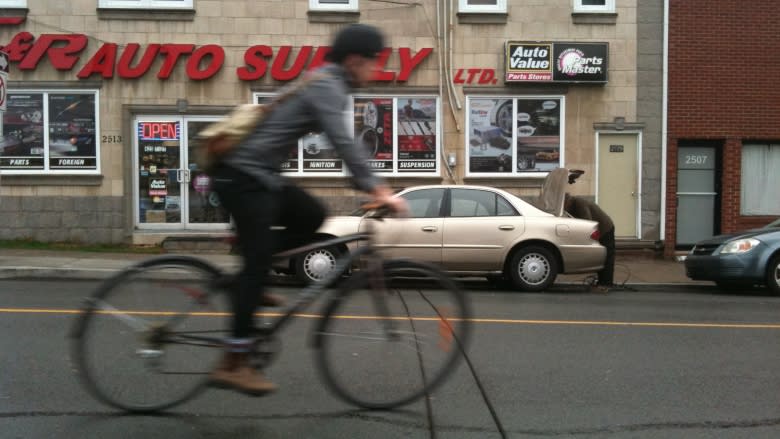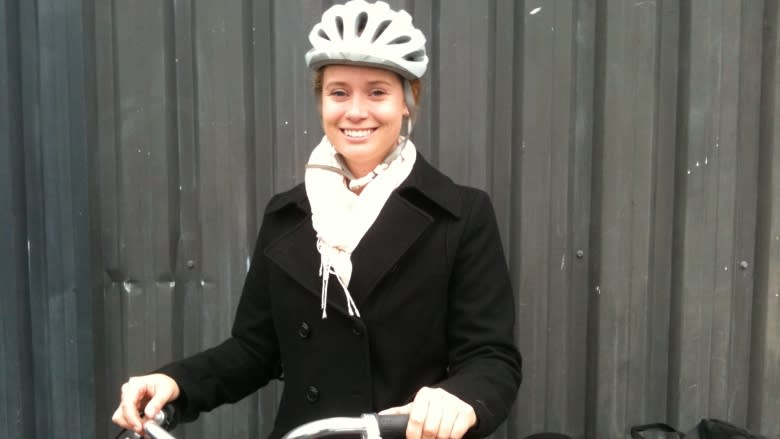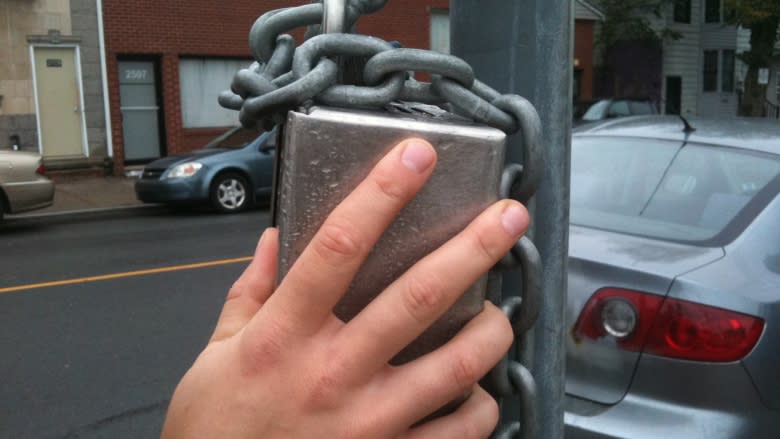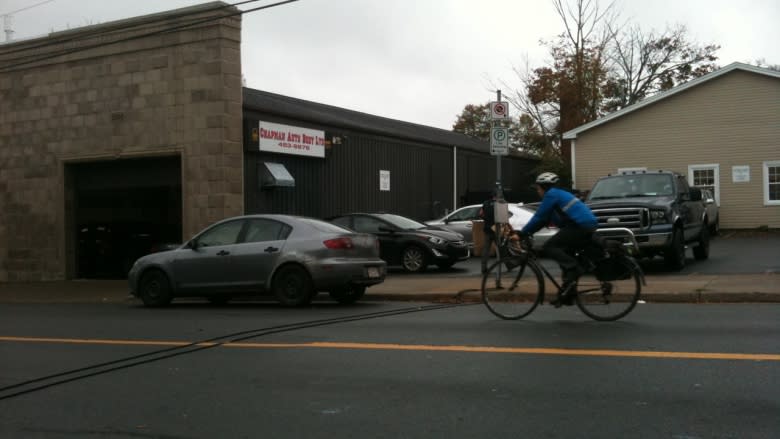New data tracker for cyclists in Halifax aims to prove need for safer streets
A new device on Agricola Street in Halifax is tracking the number of cyclists who travel that road each day, in the hopes that accurate data will take the "emotion out of the argument" when it comes to making the city safer for cyclists.
The Eco-Counter system, designed and manufactured in France, uses rubber tubes stretched across the roadway to track how often — and at what times — bicycles travel south on Agricola Street, just past Charles Street, each day.
That information is transmitted to a public website, which updates once a day at 4 a.m.
"Everyone has their own bias in terms of how they want to see the street used," said Halifax Cycling Coalition member Kelsey Lane.
"We have to share the street and we have to do so in a way that's equitable," she said, and accurate data is the first step towards making that happen.
Data imbalance
Discussions often come down to a battle between cyclists and motorists, but "the data takes the emotion out of the argument a little bit," she said.
The city has two other bicycle counters on city streets, but they rely on video footage to track numbers, Lane said, whereas the Eco-Counter tracks continuously, and with greater accuracy.
By contrast, the city has a total of 30 counters that track vehicles.
Lane said that data imbalance is a problem when it comes to street design because "the data is stronger to back up one mode of transportation over the other."
189 cyclists a day
According to the Eco-Counter, almost 3,000 cyclists have travelled on the stretch of Agricola Street since it started tracking data on Oct. 3.
On average, that's 189 cyclists each day, although the numbers vary. One day the counter tracked almost 300 cyclists and another day fewer than 20.
Plan for Agricola Street
In 2013, Halifax staff recommended against putting a bike lane on Agricola Street.
Instead, Lane said members of her group are in talks with the North End Business Association about redesigning the street to include some curb extensions or "cut outs" that would act as a "street-calming measure" to make the road safer.
Expand the network
The Eco-Counter will be in place until some time in November, Lane said.
If the pilot project goes well, she said the group hopes to expand the network, and install counters elsewhere in the city.
Money for this stage of the project came from District 8 Coun. Jennifer Watts's district capital fund.
It was organized by the Halifax Cycling Coalition, in collaboration with the Dalhousie Transportation Collaboratory (DalTRAC).





